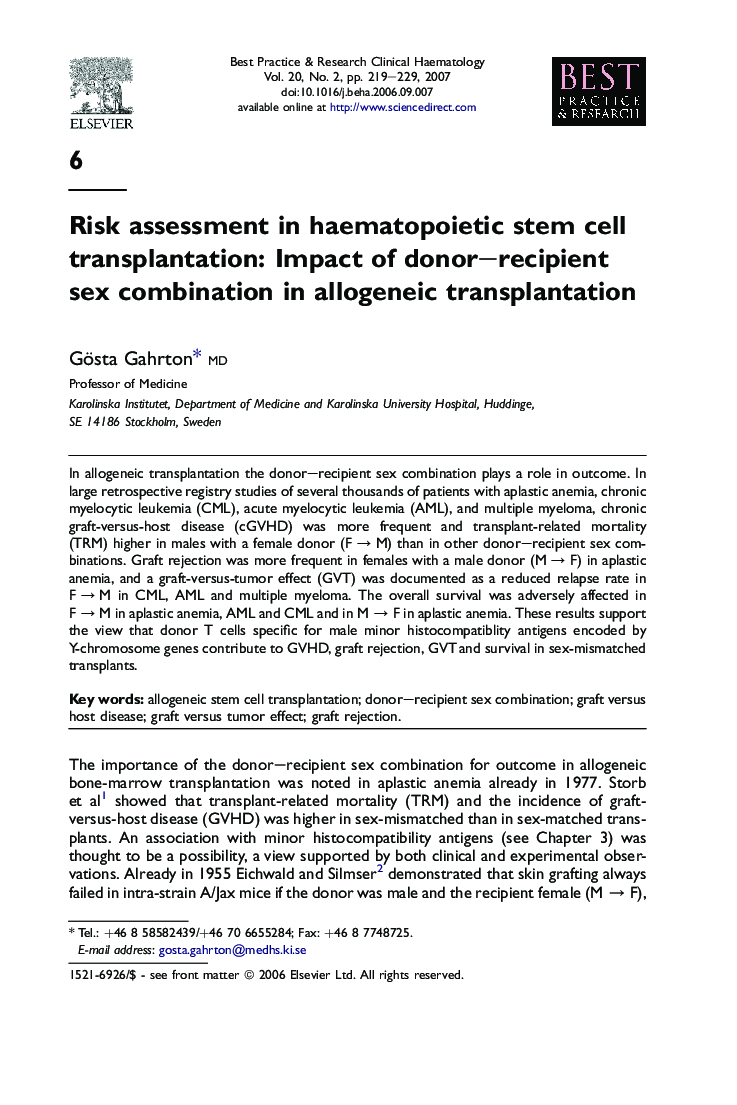| Article ID | Journal | Published Year | Pages | File Type |
|---|---|---|---|---|
| 2100564 | Best Practice & Research Clinical Haematology | 2007 | 11 Pages |
In allogeneic transplantation the donor–recipient sex combination plays a role in outcome. In large retrospective registry studies of several thousands of patients with aplastic anemia, chronic myelocytic leukemia (CML), acute myelocytic leukemia (AML), and multiple myeloma, chronic graft-versus-host disease (cGVHD) was more frequent and transplant-related mortality (TRM) higher in males with a female donor (F → M) than in other donor–recipient sex combinations. Graft rejection was more frequent in females with a male donor (M → F) in aplastic anemia, and a graft-versus-tumor effect (GVT) was documented as a reduced relapse rate in F → M in CML, AML and multiple myeloma. The overall survival was adversely affected in F → M in aplastic anemia, AML and CML and in M → F in aplastic anemia. These results support the view that donor T cells specific for male minor histocompatiblity antigens encoded by Y-chromosome genes contribute to GVHD, graft rejection, GVT and survival in sex-mismatched transplants.
